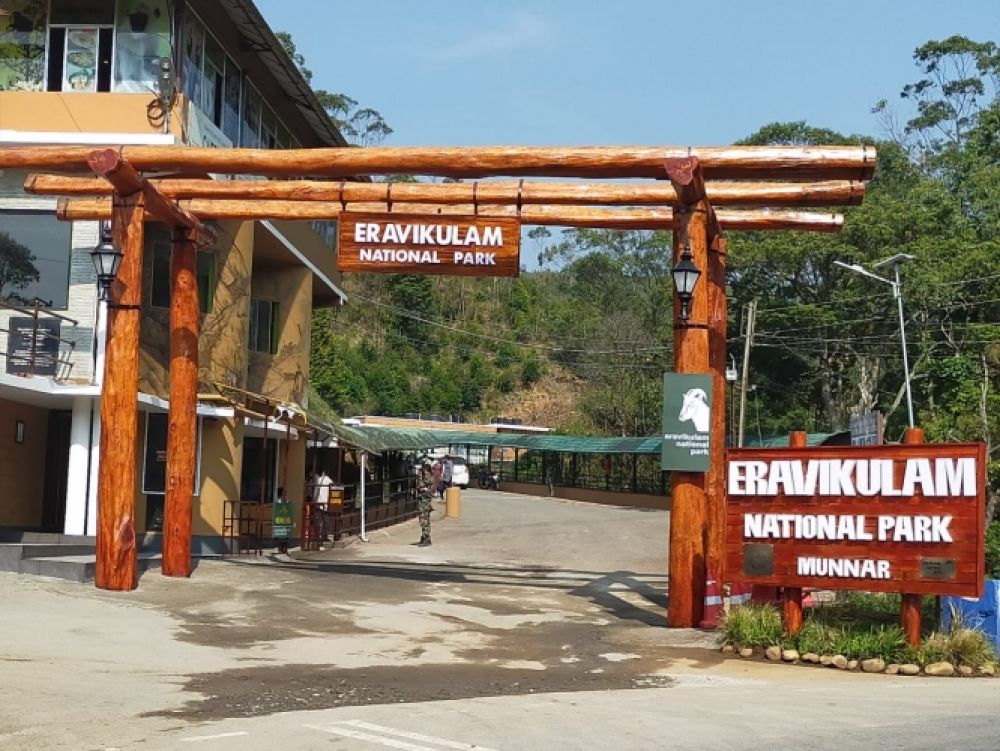

Located in the heart of the Western Ghats in the Idukki district of Kerala, India, Eravikulam National Park is a sanctuary famed for its endangered inhabitant—the Nilgiri Tahr. Spread over an impressive 97 square kilometers, this park embodies the pristine beauty of Munnar's rolling hills and is a significant draw for nature enthusiasts and trekkers from all over the world.
The history of Eravikulam National Park as a tourist hotspot has its roots in the colonial era when the region was managed as a game reserve by the British. Originally established to protect the hunting grounds near the plantations, the area was later recognized for its ecological significance, leading to its official status as a national park in 1978.
Since then, concerted efforts have been made to not only preserve its rich flora and fauna but also to maintain sustainable tourism that does not disrupt the delicate balance of the ecosystem. The park was declared a UNESCO World Heritage Site, further propelling its status in the global tourism scene and enshrining its commitment to conservation and biodiversity.
In recent years, there has been a shift towards ecotourism and responsible travel practices. Visitors are now more informed and sensitive to the environmental impact of their travels and seek to enjoy the beauty of nature while minimizing their carbon footprint. Eravikulam National Park has become a model for responsible tourism in Kerala with regulated visitor numbers, guided tours, and stringent rules to protect the native species and habitats.
Anamudi Peak, the highest point in India outside the Himalayas, is located within the park and is a major draw for adventure seekers. Trekking to the peak is allowed with special permissions, and it offers breathtaking views of the Ghats and the lush shola grasslands.
Neelakurinji blooms, which paint the slopes blue once every twelve years, are one of the park's most awe-inspiring sights, attracting domestic and international visitors alike. With the last occurrence in 2018, this rare phenomenon next anticipates an audience in 2030.
As tourism continues to grow, the park's management has implemented ticketing systems and limited entry to certain areas during sensitive periods, such as the calving season of the Nilgiri Tahr to avoid disturbances. Nature education and awareness programs are frequently conducted, targeting both locals and tourists to uphold a collective responsibility in conserving this unique ecosystem.
Open to visitors all year round—with the exception of the breeding season when it is closed for a couple of months for protection measures—Eravikulam National Park offers a memorable experience that beautifully captures the spirit of Kerala’s wild spaces. The park provides guided tours, amenities for visitors, and the opportunity to witness the harmony of nature up close and personal.
If you’re planning a trip here, it’s recommended to book your visit in advance during the peak travel seasons to guarantee entry. As you immerse yourself in the rich tapestry of biodiversity that Eravikulam has to offer, you become a part of its ongoing history of tourism—one that respects the gift of nature while celebrating its majesty.
Come visit Eravikulam National Park and be a part of the legacy of preservation, education, and responsible tourism in the beautiful state of Kerala.